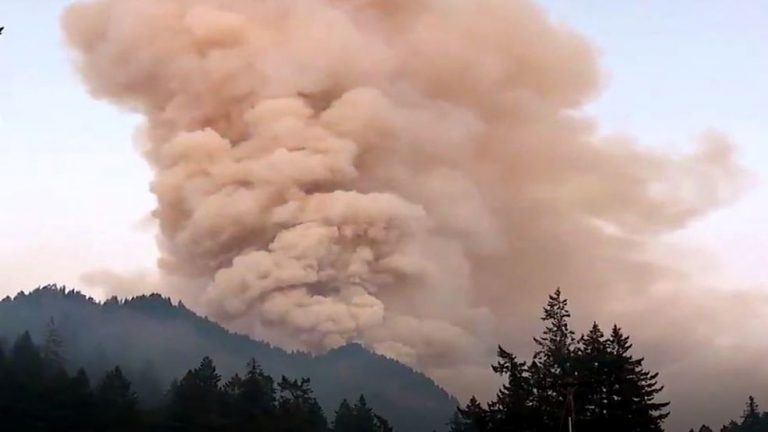Published on April 4, 2024

Originally reported in the Seattle Times by Taylor Blatchford
Checking air quality and staying indoors when smoke inundates the Seattle area has become second nature during Washington’s wildfire season in recent years. But new research highlights how wildfires can affect a less visible aspect of well-being: mental health.
A University of Washington study published in late February found an increase in prescriptions to treat depression and anxiety or stabilize mood in the six weeks after wildfires. The study used prescription data, commercial insurance claims and pharmacy records to examine the impact of 25 large California wildfires from 2011 to 2018.
“California experienced a substantial burden of wildfires from 2011 to 2018, and as wildfires become more intense and frequent in the context of anthropogenic climate change, it is increasingly important to understand and address their mental health effects,” the authors wrote.
Extensive research has focused on how wildfires and smoke affect cardiovascular and respiratory health; a study published in February found that the overlap of extreme heat and wildfire smoke had a compound effect and increased hospitalizations.
But few studies have examined how fires affect mental health. Previous research on the connection has been more qualitative, using focus groups to examine the effect of one fire in one region, said Zack Wettstein, the lead author of the study and a UW Medicine emergency medicine doctor. He conducted the research as a guest researcher with the Centers for Disease Control and Prevention’s Climate and Health Program.
“All too often we’re overlooking these mental health impacts,” Wettstein said. “There are a lot of vulnerable groups of people and these fires have substantial mental health impact we need to prepare for.”
Sleep disruption and decreased sense of safety likely affect mental health, particularly among those who must evacuate and face property loss, researchers wrote. Wildfires can also cause or exacerbate mental health conditions such as post-traumatic stress disorder, anxiety, depression and complex grief.
Continue reading here.
A University of Washington study published in late February found an increase in prescriptions to treat depression and anxiety or stabilize mood in the six weeks after wildfires.